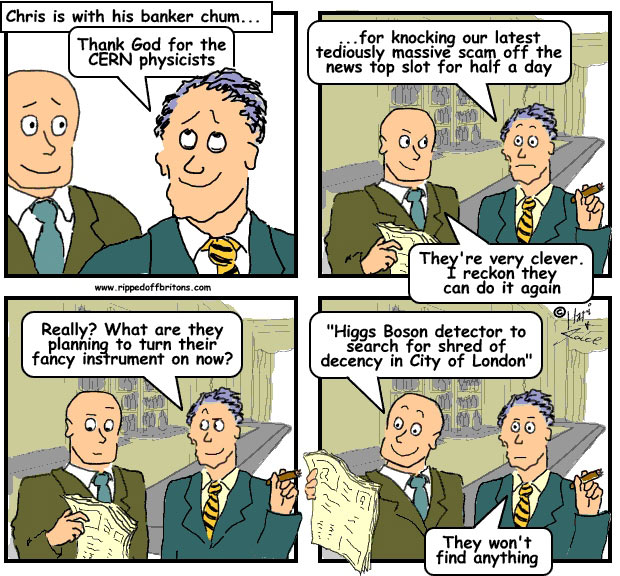SOURCE GUARDIAN: What's the catch? MPs warn UKFI over banks' £1 privatisation fees
UK Financial Investments (UKFI) is the company established
by the Treasury to hold the taxpayers’ stakes in RBS and Lloyds. It has been
warned to remain “ultra-vigilant” after it was revealed some of the City’s
biggest investment banks – including Goldman Sachs and UBS – are charging the
government as little as a £1 fee for work that would normally cost tens of
millions of pounds. Representatives of UKFI told the Treasury select committee
it had paid just £15 for help and advice related to the sale of shares in
Lloyds Banking Group and RBS which would normally have cost around £38m. Oliver
Holbourn, head of market investments at UKFI, said some City firms had even
offered to pay the government to work on its privatisations. The banks,
however, eventually concluded that such arrangements could be an offence under
the US foreign corrupt practices act. James Leigh-Pemberton, the boss of UKFI,
said he assumed the banks worked for £1 because of the caché associated with
such high-profile work. But Conservative MP, Chris Philp, warned UKFI to
proceed with caution: “I’ve never encountered an outfit like Goldman Sachs or
Morgan Stanley acting in a charitable manner,” he said. Steve Baker, another
Conservative MP on the committee, said UKFI needed to give clear answers about
where the investment banking advisers are making money, given the low fees. “I
feel sure that many of my constituents would join me in regarding in the utmost
astonishment that the same organisations that have been fined for repeat
rapacious misconduct are now the jolly good chaps we imagine from the past and
now charging just £1 for their services”.














































































